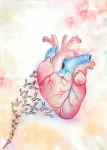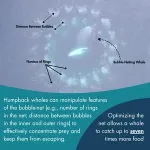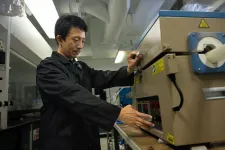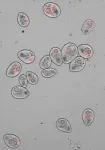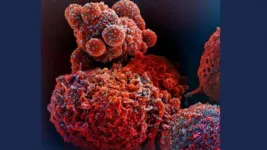(Press-News.org) New York, NY—August 20, 2024—Cardiovascular disease is the leading cause of death in patients suffering from lupus, an autoimmune disease in which our immune system attacks our own tissues and organs, the heart, blood, lung, joints, brain, and skin. Lupus myocarditis--inflammation of the heart muscle-- can be very serious because the inflammation alters the regularity of the rhythm and strength of the heartbeat. However, the mechanisms underlying this complex disease are poorly understood and difficult to study.
A long-standing question about lupus is why some patients develop myocarditis while others remain unaffected. And why the clinical manifestations of affected patients range so dramatically, from no symptoms at all to severe heart failure. Lupus is characterized by a large number of autoantibodies, immune proteins that mistakenly target a person's own tissues or organs, with different specificities for various molecules. Like our genes, they may explain why different individuals experience different symptoms.
Researchers have long suspected that specific autoantibody signatures could hold the key to the puzzling clinical variations they observe in lupus patients. Thus far, identifying autoantibodies involved in heart damage has been incredibly challenging due to the lack of experimental models that can replicate the cardiac disease in lupus patients. The currently used animal models fall short because of differences in cardiac physiology, while human cell cultures simply cannot capture the complexity and function of the human heart.
New study shows that autoantibodies can directly affect heart disease in lupus patient
In a new study, published August 15 in Nature Cardiovascular Research, a team of researchers from Columbia Engineering, Columbia University Vagelos College of Physicians and Surgeons, and Harvard University report that autoantibodies alone directly affect heart function in lupus patients.
The researchers engineered millimeter-sized cardiac tissues from healthy adult human stem cells, matured them using metabolic and electromechanical signals, and then incubated them with the autoantibodies found in the blood of lupus patients with and without myocarditis. The team found that the binding patterns of the patients’ autoantibodies to heart tissue depend on the type and severity of their myocardial damage. A subset of patients with severe myocarditis had unique autoantibody populations that primarily targeted dying cardiac cells, whereas patients with weakened heart pump function had autoantibodies that mostly targeted the surface of live cells. Interestingly, the team discovered that the autoantibodies that were binding to live cardiac cells were able to exert potent biological effects on the tissues in the absence of immune cells, revealing potentially new mechanisms that could contribute to heart failure in lupus patients.
The study also identified four such autoantibodies that may directly affect the heart muscle. These findings may help identify lupus patients with the greatest risk of developing heart disease, inform the development of new therapeutic strategies, and allow extension to other autoimmune diseases.
“This finding is the first demonstration that autoantibodies can directly mediate myocardial injury in this complex autoimmune disease,” said the team’s leader Gordana Vunjak-Novakovic, University Professor and the Mikati Foundation Professor of Biomedical Engineering, Medical Sciences, and Dental Medicine at Columbia. “It’s astounding that these tiny heart tissues we’ve engineered using human stem cells and ‘organs-on-chip’ technology have the ability to emulate organ-level functions in a patient-specific way, and for such a complex disease. We now live in the era of studying the progression and treatment of diseases using apparently simple yet highly controllable and predictive models of human organs. It feels like living in the future.”
Engineers and clinicians use collaborative approach
Vunjak-Novakovic, a bioengineer renowned for her pioneering work in engineering functional human tissue for use in regenerative medicine, and her group have spent three decades working on modeling heart injury and disease and engineering tissues to combat them. For this study, the bioengineers teamed up with two physicians, Robert Winchester and Laura Geraldino-Pardilla, both rheumatologists at NewYork-Presbyterian/Columbia University Irving Medical Center. The physicians provided blood samples containing lupus autoantibodies and detailed clinical data for the cohort of lupus patients. This enabled the Columbia Engineering team to assess the effects of patient-specific autoantibodies on heart function using engineered heart tissues and to correlate these effects to clinical symptoms.
”Myocarditis can be a diagnostically elusive and sometimes clinically ominous feature of lupus. The development of this functional mature cardiac tissue model is already opening multiple new pathways to advance our understanding and ultimately clinical management of this enigmatic autoimmune process,” Winchester noted.
To learn more about the potential therapeutic targets, Vunjak-Novakovic’s team also worked closely with Drs Christine and Jonathan Seidman from Harvard University. The team is now exploring ways to use their findings to better understand the underlying mechanisms of cardiac disease in lupus patients and to improve diagnostics and treatment of this complex and challenging disease.
"What’s really cool about this study is that by leveraging our expertise in engineering and stem cells to develop models of the human heart, we were able to take an innovative approach to solving long-standing questions surrounding heart disease in lupus patients,” said the study’s first author Sharon Fleischer, who is a postdoc in Vunjak-Novakovic’s lab. “The new framework we established in this study to investigate autoantibody interactions with human organs opens up unparalleled opportunities for understanding organ damage, not just in lupus but across a spectrum of autoimmune diseases.”
“It was wonderful to be part of such a collaborative team that included engineers, physicians, and biologists working together to investigate a challenging clinical problem,” said Trevor Nash, one of the study’s co-first authors who is a recent graduate from the Vunjak-Novakovic lab and a MD/PhD candidate in the Medical Scientist Training Program at the Vagelos College of Physicians and Surgeons.
###
About the Study
Journal: Nature Cardiovascular Research
The study is titled “An engineered human cardiac tissue model reveals contributions of systemic lupus erythematosus autoantibodies to myocardial injury.”
Authors are: Sharon Fleischer1,*, Trevor R. Nash1,*, Manuel A. Tamargo1, Roberta I. Lock1, Gabriela Venturini2, Margaretha Morsink1, Pamela L. Graney1, Vanessa Li1, Morgan J. Lamberti1, , Martin Liberman1, Youngbin Kim1, Daniel N. Tavakol1, Richard Z. Zhuang1, Jaron Whitehead1, Richard A. Friedman3,4, Rajesh K. Soni5, Jonathan G. Seidman2, Christine E. Seidman2,6,7, Laura Geraldino-Pardilla8, Robert Winchester8,9 and Gordana Vunjak-Novakovic1,8,10,‡
1Department of Biomedical Engineering, Columbia University, New York, NY, USA
2Department of Genetics, Harvard Medical School, Boston, MA, USA
3Biomedical Informatics Shared Resource, Herbert Irving Comprehensive Cancer Center, Columbia University, New York, NY, USA
4Department of Biomedical Informatics, Columbia University, New York, NY, USA
5Proteomics and Macromolecular Crystallography Shared Resource, Herbert Irving Comprehensive Cancer Center, Columbia University, New York, NY, USA
6Division of Cardiovascular Medicine, Brigham and Women’s Hospital & Harvard Medical School, Boston, MA, USA
7Howard Hughes Medical Institute, Chevy Chase, MD, USA
8Department of Medicine, Columbia University, New York, NY, USA
9Columbia Center for Translational Immunology, Columbia University College of Physicians and Surgeons, New York, NY, USA
10College of Dental Medicine, Columbia University, New York, NY, USA
The study was supported by. National Institutes of Health (P41EB027062 and 3R01HL076485 to G.V-N.), the American Heart Association (19TPA34910217 to R.W.), a Pfizer Aspire research award (WI237809 2018 ASPIRE US Rheumatology to R.W.), and the National Science Foundation (NSF1647837 to G.V-N.).
The authors declare no financial or other conflicts of interest.
###
END
Tiny killers: How autoantibodies attack the heart in lupus patients
Columbia team engineers a model of the human heart tissue that demonstrates how autoantibodies directly affect heart disease in lupus patients
2024-08-20
ELSE PRESS RELEASES FROM THIS DATE:
Study: Temporarily removing firearms from people at risk of harm saves lives
2024-08-20
DURHAM, N.C. – An estimated one life was saved for every 17 times an extreme risk protection order removed guns from people who presented a risk of harming themselves or others, according to a Duke Health-led analysis of the laws in four states.
Extreme risk protection orders -- known as ERPOs or “red flag laws" -- are civil court orders that temporarily prevent people from accessing firearms after a judge determines that they pose an imminent risk of harming themselves or others. Twenty-one states and the District of Columbia have enacted ERPO laws, mostly in ...
Study finds Americans want pandemic-era ease of applying for Medicaid
2024-08-20
More than 23 million Americans who were granted Medicaid coverage during the COVID-19 pandemic lost their coverage starting in March 2023 after the pandemic was declared no longer a public health emergency. Many likely will not successfully re-enroll on their own given Medicaid’s administrative burden—the frustrations and challenges people often encounter in seeking or complying with coverage.
Now, a study of the so-called Medicaid Great Unwinding by Dr. Simon F. Haeder with the Texas A&M University School of Public Health, ...
It only takes 15 minutes to change your health
2024-08-20
Corporate Cup, lunchtime yoga, or even ‘walk and talks’, organisations come up with all sorts of wellness initiatives to encourage people to be more active in the workplace. But before you duck and hide, new research shows that all it takes is 15 minutes and a touch of gamification to put you on the path to success.
Assessing results from 11,575 participants, across 73 Australian, New Zealand, and UK companies, University of South Australia researchers found that a gamified workplace wellness program – the 15 Minute Challenge* - leads to substantial increases in physical activity levels, with 95% of participants meeting (36%) or exceeding (59%) ...
Nadia Drake joins SETI Institute Board of Directors as observer
2024-08-20
August 20, 2024, Mountain View, CA –The SETI Institute announced that Dr. Nadia Drake is joining the SETI Institute's Board of Directors as an observer. The SETI Institute's board guides its strategic direction, finances, and various committees. As a journalist, Drake will be an active, non-voting member, bringing her broad expertise to the team.
"I am thrilled by this appointment to the SETI Institute's board, which comes at an exciting time for the SETI Institute and for the search for life beyond Earth," said Drake. "For most of my career as a science journalist, I've covered astrobiology ...
Organized youth sports are increasingly for the privileged
2024-08-20
COLUMBUS, Ohio – A sweeping study of U.S. youth sports participation over the past 60 years found that there has been a significant increase over time in kids playing organized sports – but particularly among more privileged, educated families.
A national survey found that about 70% of Americans born in the ’90s and reaching age 18 by 2015-16 said they took part in organized sports through recreational, school, or club teams. This finding showed a rather steady increase in organized sports participation across generations. Slightly more than half of those ...
UCF researcher develops lotus-inspired tech to convert CO2 to fuels, chemicals
2024-08-20
Video available here.
In an effort to reduce the environmental impact of carbon dioxide emissions, a University of Central Florida researcher has developed a new technology that captures carbon dioxide and outputs useful fuels and chemicals.
Yang Yang, an associate professor in UCF’s NanoScience Technology Center, created an innovative device that captures carbon dioxide with a microsurface comprised of a tin oxide film and fluorine layer. The device then extracts gaseous carbon dioxide via a bubbling electrode and selectively converts ...
Predation drives opportunistic bacteria to become more virulent
2024-08-20
Opportunistic pathogens are typically benign microbes that can sometimes cause infections in individuals with weakened immune systems or when they gain access to sterile areas of the body. Unlike obligate pathogens, opportunistic pathogens do not depend on host infection or transmission for survival, making it difficult to determine the factors driving the evolution of virulence in these microbes. Nevertheless, given their potential to cause severe infections in immunocompromised patients and the increasing prevalence ...
Renewable energy policies provide benefits across state lines
2024-08-20
While the U.S. federal government has clean energy targets, they are not binding. Most economically developed countries have mandatory policies designed to bolster renewable electricity production. Because the U.S. lacks an enforceable federal mandate for renewable electricity, individual states are left to develop their own regulations.
Marilyn Brown, Regents’ and Brook Byers Professor of Sustainable Systems in Georgia Tech’s School of Public Policy; Shan Zhou, an assistant professor at Purdue University and Georgia Tech Ph.D. alumna; and Barry Solomon, a professor emeritus of environmental policy at Michigan Technological University, investigated ...
Be in the know! Press conference schedule for ESC Congress 2024 released!
2024-08-20
Sophia Antipolis, 20 August 2024: It’s not long before the global cardiology community converges in London for the European Society of Cardiology (ESC)’s annual gathering, unveiling the latest practice-changing science.
The ESC Press Conference Schedule is now available, detailing the nine press conferences that will take place from Thursday 29 August to Sunday 1 September, and can be accessed in person or online. Accredited journalists will also be able to access embargoed press materials in the digital press area from Thursday 22 August.
Join triallists and ESC spokespersons for eight press conferences on the Hot ...
To subvert immune response, COVID virus stimulates production of proteins without protective function
2024-08-20
To evade the human host’s immune response, SARS-CoV-2, the coronavirus that causes COVID-19, uses the machinery of defense cells to induce the expression of unproductive isoforms of key antiviral genes – variant forms of genes that result from disrupted splicing or transcription processes and do not code for functional (protective) proteins. This is a key finding of a study conducted by researchers at the Albert Einstein Jewish Brazilian Hospital (HIAE), the University of São Paulo (USP) and the ...
LAST 30 PRESS RELEASES:
Natural compound from pomegranate leaves disrupts disease-causing amyloid
A depression treatment that once took eight weeks may work just as well in one
New study calls for personalized, tiered approach to postpartum care
The hidden breath of cities: Why we need to look closer at public fountains
Rewetting peatlands could unlock more effective carbon removal using biochar
Microplastics discovered in prostate tumors
ACES marks 150 years of the Morrow Plots, our nation's oldest research field
Physicists open door to future, hyper-efficient ‘orbitronic’ devices
$80 million supports research into exceptional longevity
Why the planet doesn’t dry out together: scientists solve a global climate puzzle
Global greening: The Earth’s green wave is shifting
You don't need to be very altruistic to stop an epidemic
Signs on Stone Age objects: Precursor to written language dates back 40,000 years
MIT study reveals climatic fingerprints of wildfires and volcanic eruptions
A shift from the sandlot to the travel team for youth sports
Hair-width LEDs could replace lasers
The hidden infections that refuse to go away: how household practices can stop deadly diseases
Ochsner MD Anderson uses groundbreaking TIL therapy to treat advanced melanoma in adults
A heatshield for ‘never-wet’ surfaces: Rice engineering team repels even near-boiling water with low-cost, scalable coating
Skills from being a birder may change—and benefit—your brain
Waterloo researchers turning plastic waste into vinegar
Measuring the expansion of the universe with cosmic fireworks
How horses whinny: Whistling while singing
US newborn hepatitis B virus vaccination rates
When influencers raise a glass, young viewers want to join them
Exposure to alcohol-related social media content and desire to drink among young adults
Access to dialysis facilities in socioeconomically advantaged and disadvantaged communities
Dietary patterns and indicators of cognitive function
New study shows dry powder inhalers can improve patient outcomes and lower environmental impact
Plant hormone therapy could improve global food security
[Press-News.org] Tiny killers: How autoantibodies attack the heart in lupus patientsColumbia team engineers a model of the human heart tissue that demonstrates how autoantibodies directly affect heart disease in lupus patients
